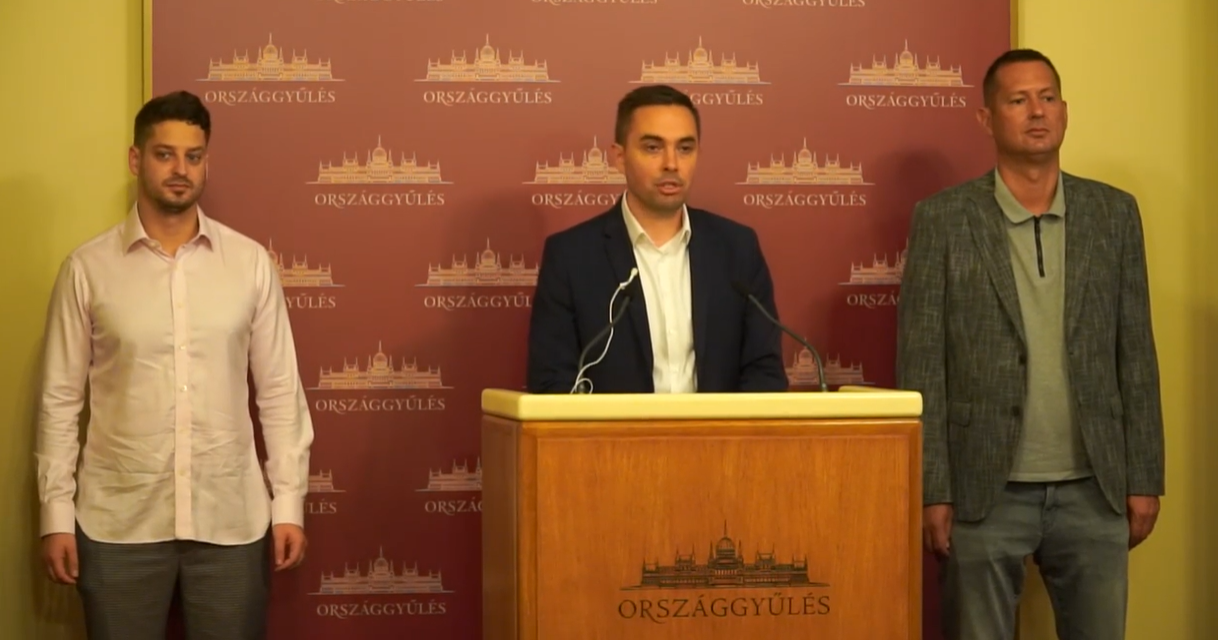
"Hungary is a democratic state governed by the rule of law, and as such, when it comes to any individual it has always acted and continues to act in accordance with the law in force," the government said.Continue reading

Ruling Fidesz-KDNP’s members refused to turn up at the national security’s meeting, convened by the opposition. As a result, the Interior Minister, who couldn’t choose not to appear at the meeting, didn’t have to respond to any questions on the potential purchase and use of Pegasus Spyware.
The case made headlines last Sunday in media outlets not under the government’s influence, after investigative site Direkt36 brought the story. According to a joint international investigation in many countries around the world, the powerful spyware was used against journalists and political opponents of governments, instead of for its original purpose of preventing terrorist attacks. Pegasus, a software created by Israeli company NSO Group, can break into phones around the world, allowing practically full surveillance of targets. Hungary is the only country in the EU in which targets of the Pegasus spyware have been identified.
According to the investigation, some 300 Hungarian targets have been detected. The first names published in the media were political rivals of the Orbán government, investigative journalists, non government-friendly businessmen, and lawyers.
Since then, it was also published that two former state secretaries of the Orbán administration were also potential targets of the surveillance. It must be emphasized that there is no clear proof that the Orbán administration employed the software. However, the accusations are very strong, especially based on NSO’s assertion that it only offers its services to national authorities.
The government has since refused to either confirm or deny the accusations, or reveal any details, while certain ministers, such as Justice Minister Judit Varga, shift responsibility onto another colleague or subordinate to answer. Meanwhile, they are calling the case “an internationally-generated hysteria.”
The opposition moved to convene the Parliament’s national security committee right after the case was made public. Government politicians made it clear much earlier that they wouldn’t show up, saying that the case is “unjustified” and founded on the bias of left-wing media. And without its ruling alliance’s members, the meetings lack quorum, which the ruling forces applied and used in their favor, once again.
This meant that although the Interior Minister did turn up at the meeting, he didn’t have to respond to any of the questions.
Previously, he said that the national committee’s head (Jobbik’s János Stummer) should be asked about the procurement of the software. He may have referred to the procedure in which the National Security Cabinet could turn to the National Security Committee with a proposal requesting an exemption from the public procurement procedure. And that exemption must be decided by the National Security Committee. As a matter of fact, these requests can only consist of a few sentences that don’t necessarily reveal what they are about, meaning that perhaps such a request regarding Pegasus did make it to the Committee but remained under the radar of the opposition politicians.
The board will now retroactively review all such past requests. However, opposition politicians also say that Pintér set a trap with his move, as even if they find something, that would be a matter of state secret of which they couldn’t inform the public.
Similar to previously-voiced opinions, opposition politicians insist that the government’s silence equals guilt. Three opposition members of the committee (LMP’s Péter Ungár, MSZP’s Zsolt Molnár, and Jobbik’s Stummer, who also presides over the body) held a joint press conference after the (postponed) meeting.
According to Stummer, the government’s reaction last week showed that Fidesz is “skirting around” the issue. Stummer said “the government pretends as if there was no scandal but only scare-mongering, while they are using every means to avoid political responsibility.” He believes that ruling Fidesz and the allied Christian Democratic deputies’ absence from the meeting was “sabotage.”
The fact that the Regional Prosecutor’s Office of Investigations of Budapest launched an investigation into the matter is only part of that, Stummer argues, noting that this way, a parliamentary fact-finding committee could not be set up in the case. And the prosecution’s efforts cannot be trusted, Ungár added.
Molnár suggested that though the spyware could have been procured legally, and for a state to have such tools is in fact not something necessarily undesirable, “the main question is not its purchase but… if it was abused.” He slammed the ruling parties for staying away, and interpreted their absence as “confirmation that they have something to hide.”
The opposition politicians will now retroactively review all such procurement requests from the two last government cycles, and if they find something they will propose setting up a fact-finding investigation in the autumn session.
“Truth cannot be obliterated by technical moves such as rendering a committee meeting invalid,” Zsolt Molnár concluded, adding that “a definitive solution could be achieved in spring 2022,” referring to the upcoming elections.
featured image: (from left to right) LMP’s Ungár, Jobbik’s Stummer and MSZP’s Molnár at the press conference; via Jobbik’s Facebook page